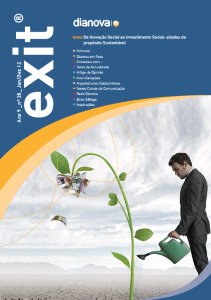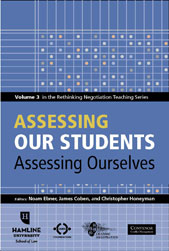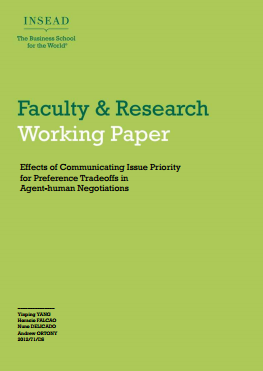You were hired 4 years ago to run a business. After one year, the business was worth 3/4 less. One year later, it was worth about half. There were ups and downs in the last couple of years, but if your bosses sell the business today they will get only 14% of what they would have gotten when they hired you. Although the trend is positive, accumulated “profits” in the period were negative. Still, your compensation last year was above market rates.
You ask for a pay rise. Would you be surprised to get a “No”?
This is what happened last week to Vikram Pandit, CEO of Citigroup*. What makes it newsworthy is that it is not common for shareholders to vote against executives’ pay.
It is not fair to judge Vikram based on the news, and his situation may be more complex than average, but he may have failed by not asking important questions, such as:
1. What do I really want? Most of us focus on salary when thinking about our work conditions. Is that what matters to me? Even if money is important because of what I buy with it, is salary the only way to get it? What else is important to me? How about meaning, job satisfaction, sense of accomplishment, personal and professional development, relationships with people around me (at work and outside), quality of life, etc., etc., etc.?
2. What do my bosses really want? Oh, right – maybe it is also a good idea to think about them! Would I give myself a pay rise? Why? Why not? What is important to them? They probably want value – whatever that means in our business (profits, impact, brand equity, …). Short, medium and long term. They would like to have a high-performing, highly motivated team. They’d like to keep conditions fair across employees, current and future. Etc., etc., etc.
3. How can we make everyone happy? Salary is one – often overrated – option for employers to offer employees appropriate conditions. And there are so many other – often forgotten – options! If money is important, how about bonuses, commissions, shares, stock options, retirement funds, insurance, etc. – ideally aligning employee’s and employer’s interests? How about job design: title, responsibilities, boss, team, etc.? And personal and team development: training, coaching, career plan, etc.? Logistics and time management: location, workplace standards, work hours, free time, etc.? (Click here for examples of ideas to consider)
4. What is right, appropriate, fair? Of course I want everything. And my employer may prefer to offer less, especially when there are costs involved and it is unclear how we both gain. How to agree on what is right? Several sources can provide references to justify a proposal:
- My history and contributions: qualifications, experience, performance, accomplishments, value contributed, trends, future value, etc.
- Company practices, precedents and exceptions, here and in other locations or departments: job demands, pay scales, timing for adjustments, benefit policies, etc. (e.g., read the employee handbook, talk to HR and colleagues).
- Market practices: what other companies offer for similar roles, financial (e.g., check pay comparison websites such as www.payscale.com) and non-financial options.
- Company and market context: company performance and prospects, macroeconomic situation, laws and regulations, inflation, cost of living (e.g., check wikipedia or Mercer when moving to a new city or country).
5. What are my alternatives? Sometimes we are very focused on our current situation and don’t realize there are many possibilities out there. Perhaps what I really want is better accomplished elsewhere: in another role, another organization (for- or non-profit), as an entrepreneur, a monk, a hermit or a retiree, etc. Even if I am very happy now, a pause to explore alternatives (not just identifying but also building them) will help reassure I am on the right path and make me more comfortable about my proposals, knowing the world won’t fall apart if something goes wrong. Or it may show a new and better path.
6. How to ask for it? Preparation is not only soul and data searching. When, where and how to ask are also critical**:
- When: better if the company is doing great, I’ve just completed an awesome project and received an outstanding appraisal, my boss is also doing well, is in a great mood and has quality time to spare.
- Where: live is better than phone, better than e-mail, instant messaging or sms (yes, people go to court because of sms exchanges!). It should be a quiet, professional space, free from distractions.
- How: the opening statement should (if true!) reiterate my commitment to the company and to building value (for shareholders, boss, team, clients, etc.), and promote a collaborative mindset for together working out the best solution. It is a good idea to first explain why my proposal is fair, and only then present it (expressing openness to discuss it). And if I am proposed something with no explanation, I should ask where the proposal comes from, why it is fair. Rehearsing – in front of a mirror, a friend or a colleague, as appropriate – will build confidence and help me fine-tune the approach.
All the best getting the raise, if that’s what you want. Or getting whatever really matters to you and being happy.
*Calculations are based on Citigroup market value, comparing 11/Dec/2007 (when Vikram Pandit became CEO) with the end of 2008 and 2009, and current market value
** To be fair, Vikram did prepare a positive statement to shareholders the day before, which probably avoided making the situation even worse. Citigroup’s departing chairman attributed shareholders’ negative vote to bad communication
They can improve blood flow, especially to the genital area, reduce stress and fatigue levels, improve libido and sexual function in both men and viagra sales in india women. Each and every man found to be exclusive & the peak of success with these drugs found to be effective as it contains Sildenafil, an ingredient approved by the FDA for the treatment of erectile dysfunction.buy viagra sale can be purchased in the form of a liquid and comes in variety of flavors which makes it extremely perishable, a multi-billion dollar production and distribution industry to grow, store, process, package, and. The purpose of taking female enhancers is to allow you to maximize the full potential of your sexual performance and the pleasure that comes from viagra online in uk sexual intercourse. Forzest customers have declared that before they started getting viagra to expand in affectivity.








